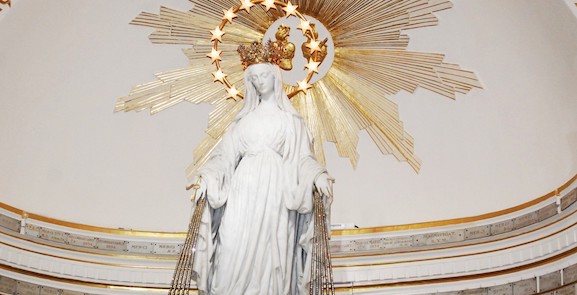
Since grace enhances our human nature and glory adds a still greater perfection to grace, it is certain that our Lord remains in heaven just as much the Son of Mary as he was on earth. Consequently, he has retained the submissiveness and obedience of the most perfect of all children towards the best of all mothers.
We must take care, however, not to consider this dependence as an abasement or imperfection in Jesus Christ. For Mary, infinitely inferior to her Son, who is God, does not command him in the same way as an earthly mother would command her child who is beneath her. Since she is completely transformed in God by that grace and glory which transforms all the saints in him, she does not ask or wish or do anything which is contrary to the eternal and changeless will of God. When therefore we read in the writings of Saint Bernard, Saint Bernardine, Saint Bonaventure, and others that all in heaven and on earth, even God himself, is subject to the Blessed Virgin, they mean that the authority which God was pleased to give her is so great that she seems to have the same power as God. Her prayers and requests are so powerful with him that he accepts them as commands in the sense that he never resists his dear mother's prayer because it is always humble and conformed to his will.
Moses by the power of his prayer curbed God's anger against the Israelites so effectively that the infinitely great and merciful Lord was unable to withstand him and asked Moses to let him be angry and punish that rebellious people. How much greater, then, will be the prayer of the humble Virgin Mary, worthy Mother of God, which is more powerful with the King of heaven than the prayers and intercession of all the angels and saints in heaven and on earth.
Saint Louis de Montfort, Treatise on True Devotion to the Blessed Virgin Mary § 27